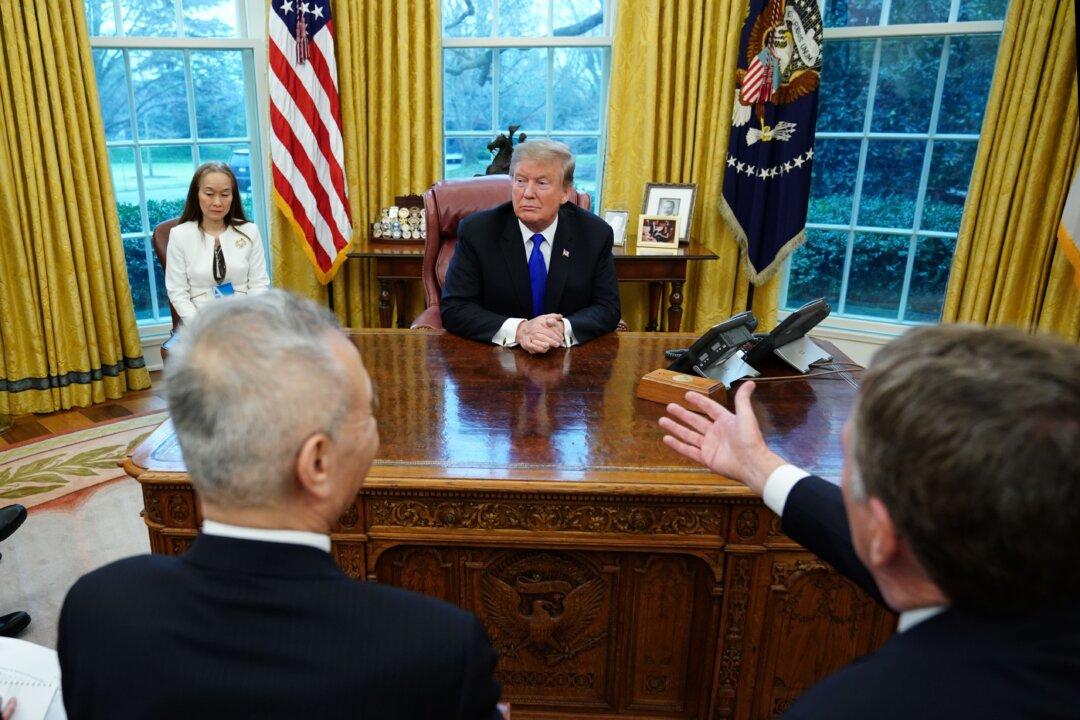WASHINGTON—President Donald Trump said on Feb. 24 he would delay an increase in U.S. tariffs on Chinese goods scheduled for later this week thanks to progress in trade talks and said if progress continued, he and Chinese leader Xi Jinping would seal a deal.
Trump had planned to increase tariffs to 25 percent from 10 percent on $200 billion worth of Chinese imports into the United States if a deal were not reached by Friday, March 1, between the world’s two largest economies.





